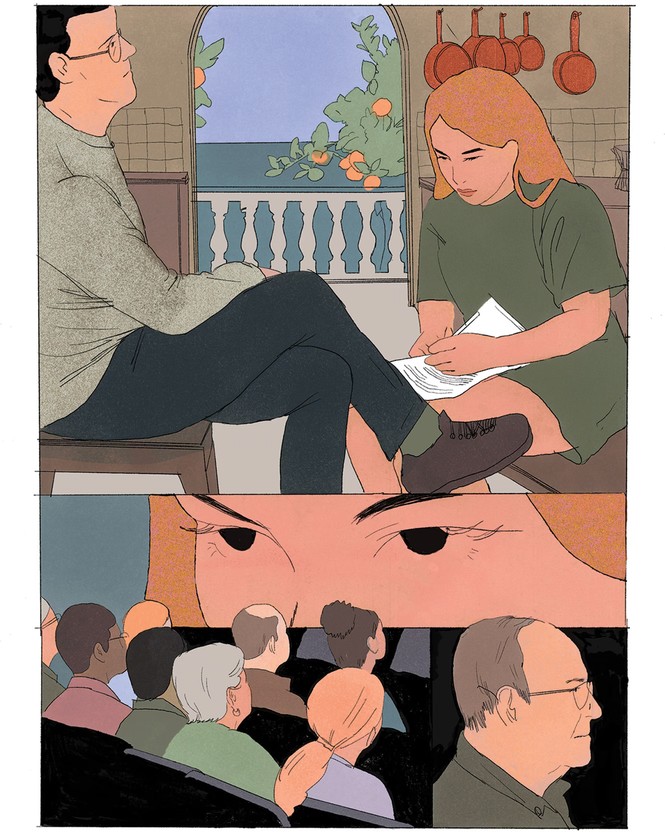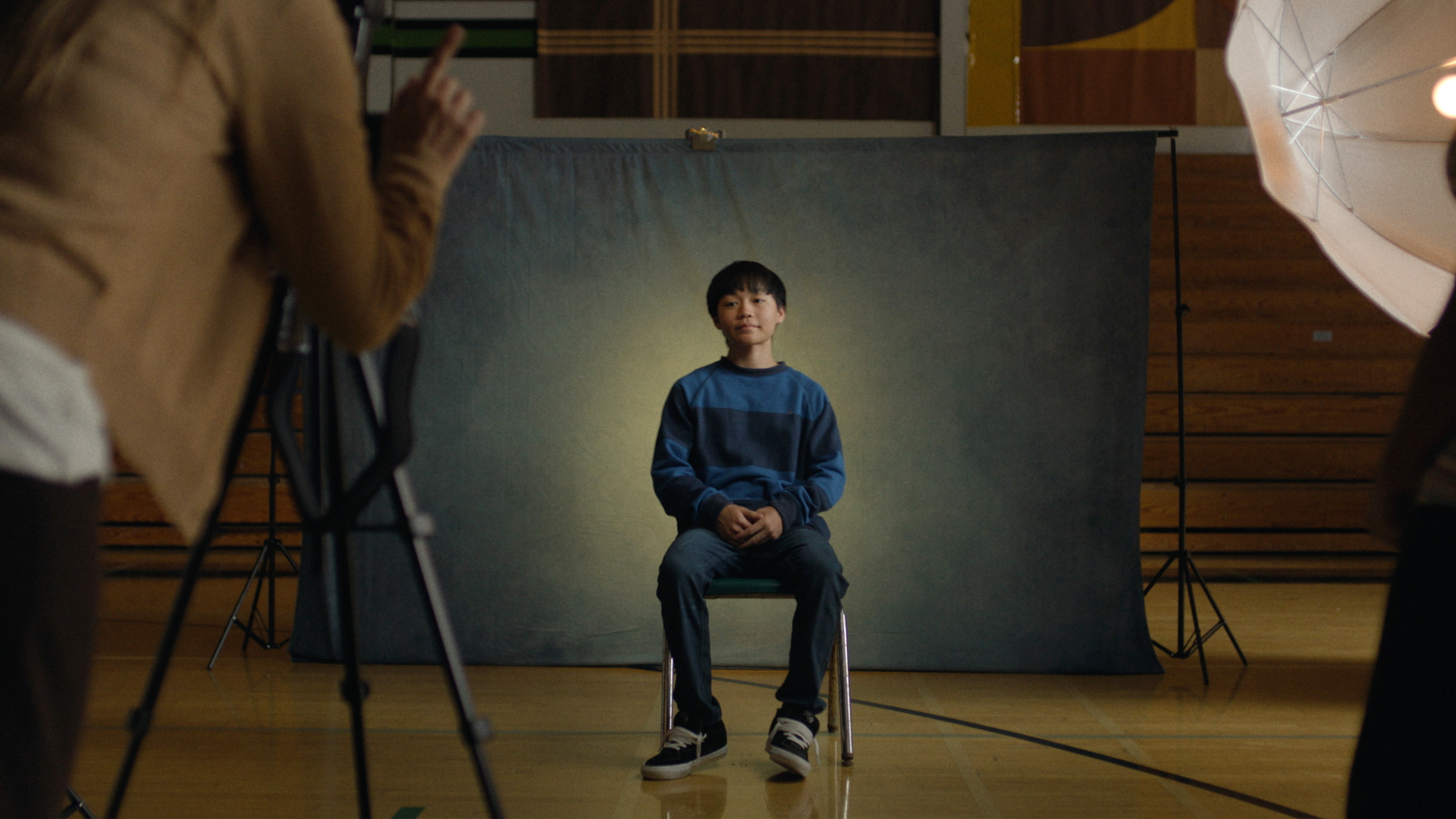Why Some #MeToo Fiction Puts Men Center Stage
5 min read
This is an edition of the Books Briefing, our editors’ weekly guide to the best in books.
In 2017, the #MeToo movement enabled many women who had been abused by powerful men to make themselves heard for the first time. Not long after, writers started to respond to the moment, with a slew of novels that centered women’s experiences with sexual misconduct. Jo Hamya’s new novel, The Hypocrite, which follows a young playwright named Sophia as she mounts a production of her new work, takes something of a different approach. As Hillary Kelly wrote in an essay about the book, Hamya devotes a lot of ink to the point of view of Sophia’s unnamed father, who has largely been absent from his daughter’s life. He is a writer and a lech whose novels, according to Sophia, read like “prolonged rape scenes in films,” and he’s defended famous men who preyed on women.
First, here are four new stories from The Atlantic’s books section:
- A satire of America’s obsession with identity
- The monumental discovery that changed how humans see themselves
- A memoir about recovering from men
- A vision of England today, dark and rotten
Kelly’s essay made me think of another #MeToo book that gives voice to an intemperate man: Mary Gaitskill’s 2019 novella, This Is Pleasure. Gaitskill switches perspectives between two characters: Quin, a successful book editor whose life is in shambles after several women have accused him of inappropriate behavior, and Margot, his friend and a fellow editor. Women whom Quin considered friends have been turning on him, alleging that his past advances, which he thought were welcome and reciprocated, were actually one-sided and predatory. Margot, though she once rebuffed an earlier pass of Quin’s, crucially does not consider herself his victim. Her voice injects nuance into a story that, to many outsiders, might seem like a pretty clear-cut case of long-overdue accountability. She alternately views Quin as clueless, infuriating, and amusing. And though she recognizes the anger of the women who have accused him, she never wavers in her love for him.
As Kelly writes, putting men at the forefront of these stories asks us to consider whether including them might help us better “understand women’s stories about powerlessness and oppression.” I’m not sure of the answer to that question; many people argue that a perpetrator’s voice has no place in a victim’s story. But hearing from Sophia’s father, in Hamya’s book, and from Quin, in Gaitskill’s, gives the reader a reason to pity them. And pity, as Kelly puts it, is “a weapon: It makes its object smaller and weaker.”
In The Hypocrite, the reader cringes as the father squirms in embarrassment while watching his daughter’s play, which eviscerates an out-of-touch older male writer clearly modeled on him. You might also pity Quin, who, at one point, is told by his wife that he’s “not even a predator. Not even. You’re a fool. A pinching, creeping fool. That is what’s unbearable.” But in both of these books, making the object of pity “smaller and weaker” isn’t a simple victory for the women he’s hurt. As Kelly writes, Hamya recognizes that “the question of how to handle womanizers (to purposely use a dated term) is not easily answered by shaming them.” Instead, Hamya leaves the question of how to hold these men accountable open. Pity is perhaps just a first step in taking back the power they once had.

Consider the Boor
By Hillary Kelly
In Jo Hamya’s new novel, pity becomes a form of power.
Read the full article.
What to Read
Personal Days, by Ed Park
If you’ve ever worked a demoralizing white-collar job, Park’s satirical novel will feel instantly familiar. Its protagonists, eight employees at an unnamed New York–based company, wrestle with the arcane formatting glitches of Microsoft Word, speculate about the sex lives of their superiors over drinks, and live in fear of the corporate overlords threatening to buy their company, whom they call “the Californians.” But a shift occurs when one member of the crew, Jill, is suddenly fired and a new employee named Graham—or “Grime,” as everyone calls him, because of his British accent—appears. Mysteries proliferate. What’s the meaning of the cryptic notebook in which someone has copied out inspirational quotes from business self-help books? Or the Post-its with the name Jason scrawled on them? And why is Grime so weird? You’ll keep turning pages in search of the answers to these questions, but the book’s pleasure comes in its pitch-perfect evocation of office culture: the odd blend of intimacy and distance that results when you spend the majority of your time with people whose personal lives you know little about. I laughed—many times—in recognition. — Chelsea Leu
From our list: What to read when you want to quit
Out Next Week
📚 There Are Rivers in the Sky, by Elif Shafak
📚 When the Ice Is Gone, by Paul Bierman
📚 The Unicorn Woman, by Gayl Jones
Your Weekend Read

A Movie That Understands the 2000s-Internet Generation
By Shirley Li
As a crowd-pleasing portrait of adolescent angst, Dìdi—this year’s Sundance Audience Award winner—has drawn comparisons to films such as Eighth Grade, Lady Bird, and Mid90s. To an extent, these comparisons make sense: Chris, like the subjects of those movies, wants to stand out for who he is while also fitting in with everyone else. But Dìdi sets itself apart by examining more than just the turbulence of growing pains; it’s also a period piece that understands the flattening effect the internet has on teenagers in particular. The “screen life” format, which tracks a character’s actions exclusively via digital interfaces, has been deployed in films such as Searching and Missing as a nifty device for immersing an entire plot in the digital world, but here it’s used only in key sequences, and captures the particular confusion experienced by a generation of kids who spent their formative years interacting through social media. Dealing with crushes and overbearing parents is child’s play, Dìdi suggests, compared with figuring out how to define yourself online when you’re not even sure how to define yourself in real life.
Read the full article.
When you buy a book using a link in this newsletter, we receive a commission. Thank you for supporting The Atlantic.
Explore all of our newsletters.



